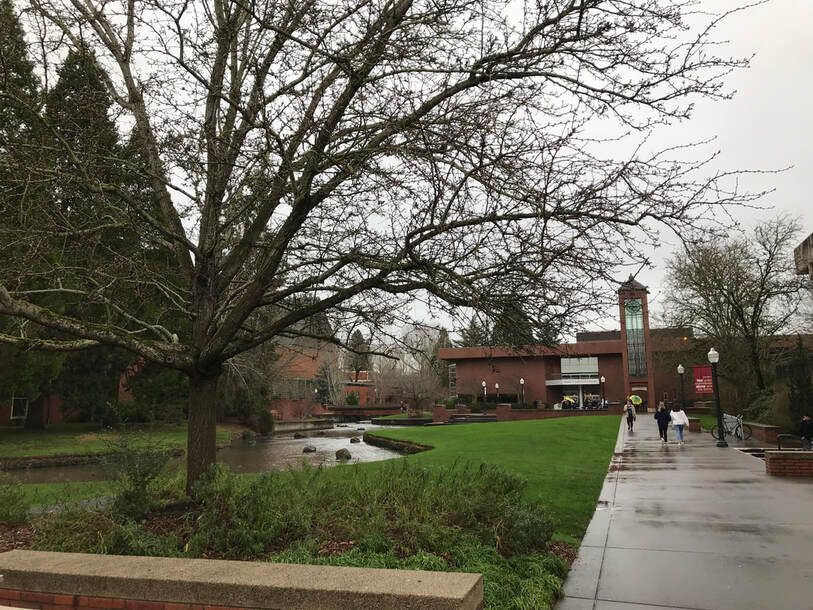|
Those of you who follow A+ College Consulting on Facebook know that I spent the last week of January this year touring colleges and universities in the Portland, Oregon area. While I was impressed by many things, including the incredible internship and experiential learning opportunities available to students in that area, I was most excited about one particular group of students that I met: the Hawaiians. At almost every one of the 7 colleges and universities that our college counselor group visited, I met students from Hawaii. Though each one had different academic and extracurricular interests, they all shared a common refrain: they were so happy that they chose to leave Hawaii to pursue their higher education on “the mainland.”
Let’s put this into context. Hawaii has 4 public universities, 5 private/non-profit universities, and 7 community colleges, not to mention special focus institutions. Clearly, Hawaiians have ample higher educational opportunities that don’t require flying 2,603 miles to Oregon or 2,471 miles to California. So, why did so many students choose to leave their homes to go such far distances for their undergraduate educations? I asked each Hawaiian I met this question and each one replied with the same answer: each one wanted to experience something new and different. These students wanted to be exposed to different environments, different people, and to different perspectives. And each student felt that he/she/they had grown so much because of this important choice, both intellectually and emotionally. Hearing these sentiments from this group of students filled my heart with joy, since they were willing to take a good risk because they knew that the reward would be priceless. I also loved witnessing the self-awareness of these students, since they truly understood a crucial part of the undergraduate experience - the incredible benefit students receive when they have to function in an environment where a variety of viewpoints, ideas, and ways of seeing and living in the world intersect and engage in a dialogue every day (inside and outside of a classroom). Moreover, these first years, sophomores, juniors, and seniors seemed self-confident and mature, since they knew how to help themselves (meaning, they knew what resources were available to them at the their home institutions, and they used these programs, places, and people to get the assistance that they needed). In other words, none of these young adults were having Mom or Dad intervene on their behalf to solve their problems. This last part particularly resonated with me, especially since I’ve been reading Julie Lythcott-Haims’ New York Times bestselling book How to Raise an Adult: Break Free of the Overparenting Trap and Prepare Your Kid For Success as part of the newly established virtual book club for members of the New England Association of College Admission Counseling. Though her book was published in 2015, Lythcott-Haims’ arguments about how “helicopter parents” have taken over every aspect of their child’s life are still extremely applicable five years later. Too many parents micro-manage and over-schedule their offspring to the point where the practice of them going to job interviews with their twenty-something child is becoming more and more commonplace! To me (and to Lythcott-Haims, a former Dean of Freshman and Undergraduate Advising at Stanford University), this hyper-involved parenting has disastrous consequences, creating generations of young adults without the resilience or even basic life skills to function without a parent hovering near by. To be clear, neither I nor Lythcott-Haims are advocating for child neglect or for minimal parenting! However, I support her calls for parents to encourage their children at each stage of development to learn appropriate levels of independence. So, I challenge both parents and their students, as you research universities or as you’re deciding where to send that college deposit: please consider going out of your comfort zone! For students, this may mean seriously considering attending a college in a different state that’s further away from your parents or exploring different academic programs that really interest you but may not be what your parents want you to study. For parents, this may look like allowing your child to make his/her/their own decision about where to go to college or what to study, trusting that you’ve raised a smart and capable human being who can make good choices. For both, this likely means knowing that making mistakes is part of life, and that one of the most important skills to have is the ability to learn from errors and to bounce back from failure. To that end, let’s all emulate those amazing students from Hawaii who left home to learn - a person grows the most when that comfort zone is left behind in favor of exploration and discovery!
0 Comments
|
AuthorMaruta Z. Vitols is an independent educational consultant in the metro-Boston area. When not helping students achieve their dreams, she enjoys hanging out with her dog, exploring new places with her husband, and doing yoga. Archives
April 2023
Categories |


 RSS Feed
RSS Feed